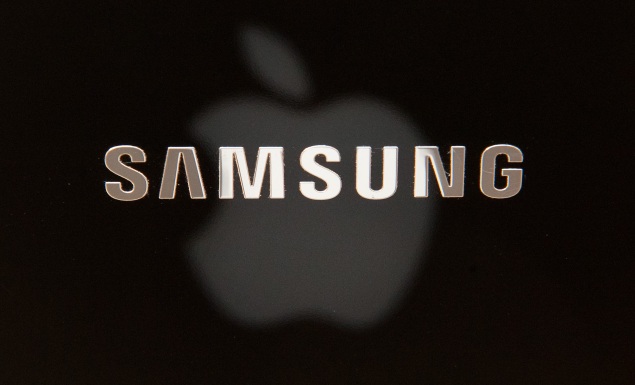- Home
- Mobiles
- Mobiles News
- Samsung bid to overturn US ban fails, some devices could be taken off shelves
Samsung bid to overturn US ban fails, some devices could be taken off shelves

The decision is the latest step in a patent battle across several countries as Apple and Samsung vie for market share in the lucrative mobile industry. Samsung and Apple are the No. 1 and No. 2 smartphone makers globally, respectively.
Neither the U.S. International Trade Commission (ITC), which made the patent ruling, nor the U.S. Customs and Border Protection, which would enforce the ban, has spelled out which of Samsung's many devices will be affected.
The ITC said on August 9 that some smartphone and tablet models made by South Korea's Samsung infringed on Apple patents, and banned their importation or sale.
(Also see: ITC judge says Samsung infringes key part of Apple patent)
U.S. Trade Representative Michael Froman had 60 days to overturn the ban, as he did in a recent case where Apple was found to have infringed on a Samsung patent, but decided not to.
"After carefully weighing policy considerations, including the impact on consumers and competition, advice from agencies, and information from interested parties, I have decided to allow the commission's determination," Froman said in a statement.
A Samsung spokesperson said: "We are disappointed by the US Trade Representative's decision to allow the exclusion order issued by the US International Trade Commission. It will serve only to reduce competition and limit choice for the American consumer."
Apple filed a complaint in mid-2011, accusing Samsung of infringing its patents in making a wide range of smartphones and tablets.
The ITC ruled that the Samsung devices infringed on portions of two Apple patents on digital mobile devices, related to the detection of headphone jacks and the operation of touchscreens.
Samsung has said its newer models incorporate features that work around disputed technology, and that those changes have been approved by the ITC.
When the ITC issues exclusion orders, they generally do not have model numbers of devices but are broadly written, said Jamie Underwood, an ITC patent expert with the law firm Alston & Bird, LLP.
Both companies have likely been lobbying aggressively, with Apple pushing for a larger number of Samsung models to be banned and Samsung arguing for fewer, she said.
"It is common to have differences over what is covered by an exclusion order," she said.
Implementation of the ban could also be hampered by the federal government shutdown, now in its eighth day, although most customs and border protection personnel remain on the job.
In August, the USTR overturned a proposed ban on some older-model Apple iPhones and iPads which had been found to infringe Samsung patents. Patents involved were standard essential patents, while the patents covered by Tuesday's decision were not.
(Also see: Obama administration overturns US import ban on some iPhones, iPads)
Standard essential patents are central to the products at issue and are supposed to be licensed broadly and inexpensively. U.S. antitrust authorities have argued that infringing on them should trigger requirements for license payments but not import or sales bans.
Calls to Customs seeking comment were not immediately returned. Apple declined comment for this story.
© Thomson Reuters 2013
Get your daily dose of tech news, reviews, and insights, in under 80 characters on Gadgets 360 Turbo. Connect with fellow tech lovers on our Forum. Follow us on X, Facebook, WhatsApp, Threads and Google News for instant updates. Catch all the action on our YouTube channel.
Related Stories
- Samsung Galaxy Unpacked 2026
- iPhone 17 Pro Max
- ChatGPT
- iOS 26
- Laptop Under 50000
- Smartwatch Under 10000
- Apple Vision Pro
- Oneplus 12
- OnePlus Nord CE 3 Lite 5G
- iPhone 13
- Xiaomi 14 Pro
- Oppo Find N3
- Tecno Spark Go (2023)
- Realme V30
- Best Phones Under 25000
- Samsung Galaxy S24 Series
- Cryptocurrency
- iQoo 12
- Samsung Galaxy S24 Ultra
- Giottus
- Samsung Galaxy Z Flip 5
- Apple 'Scary Fast'
- Housefull 5
- GoPro Hero 12 Black Review
- Invincible Season 2
- JioGlass
- HD Ready TV
- Latest Mobile Phones
- Compare Phones
- Tecno Pova Curve 2 5G
- Lava Yuva Star 3
- Honor X6d
- OPPO K14x 5G
- Samsung Galaxy F70e 5G
- iQOO 15 Ultra
- OPPO A6v 5G
- OPPO A6i+ 5G
- Asus Vivobook 16 (M1605NAQ)
- Asus Vivobook 15 (2026)
- Brave Ark 2-in-1
- Black Shark Gaming Tablet
- boAt Chrome Iris
- HMD Watch P1
- Haier H5E Series
- Acerpure Nitro Z Series 100-inch QLED TV
- Asus ROG Ally
- Nintendo Switch Lite
- Haier 1.6 Ton 5 Star Inverter Split AC (HSU19G-MZAID5BN-INV)
- Haier 1.6 Ton 5 Star Inverter Split AC (HSU19G-MZAIM5BN-INV)






![[Partner Content] OPPO Reno15 Series: AI Portrait Camera, Popout and First Compact Reno](https://www.gadgets360.com/static/mobile/images/spacer.png)









